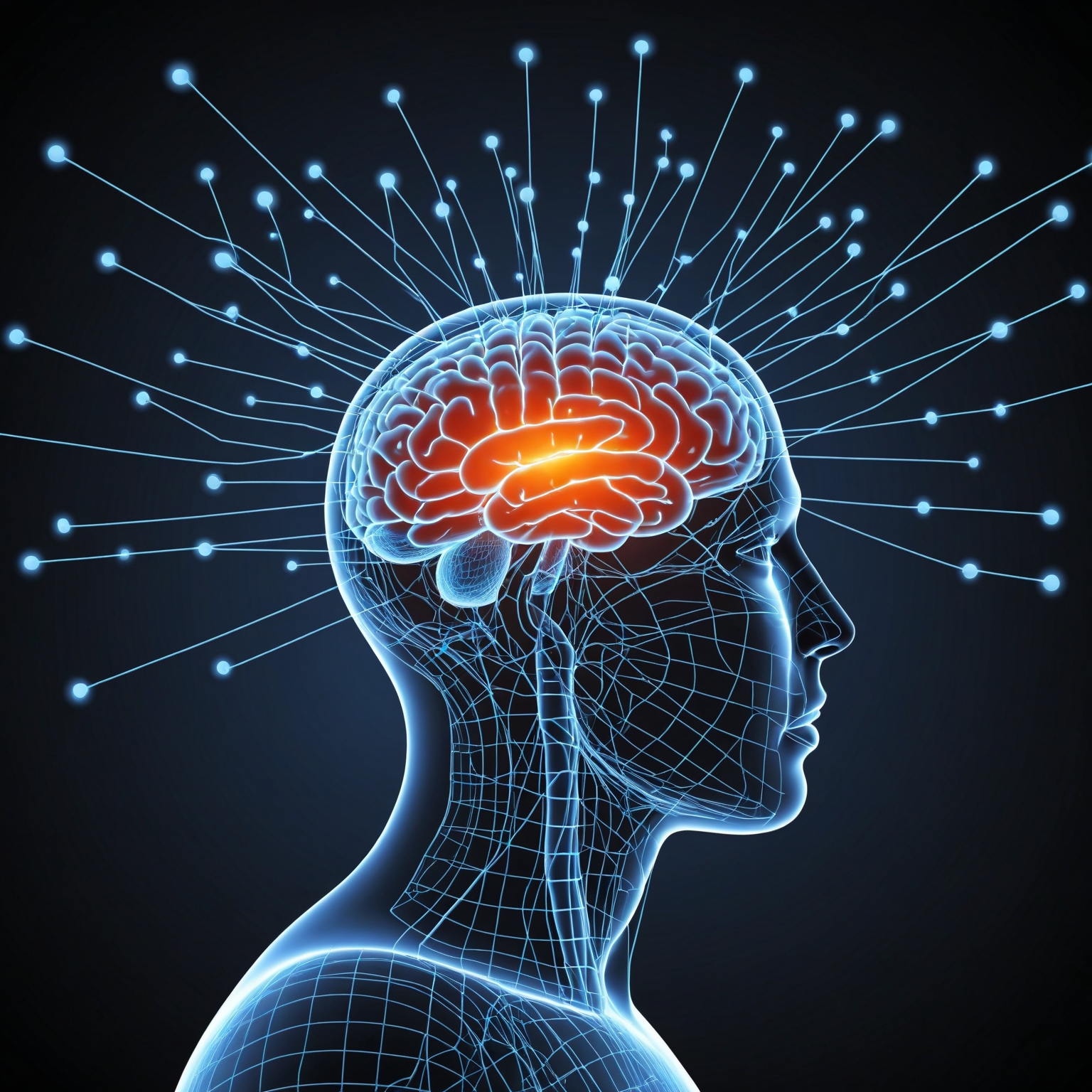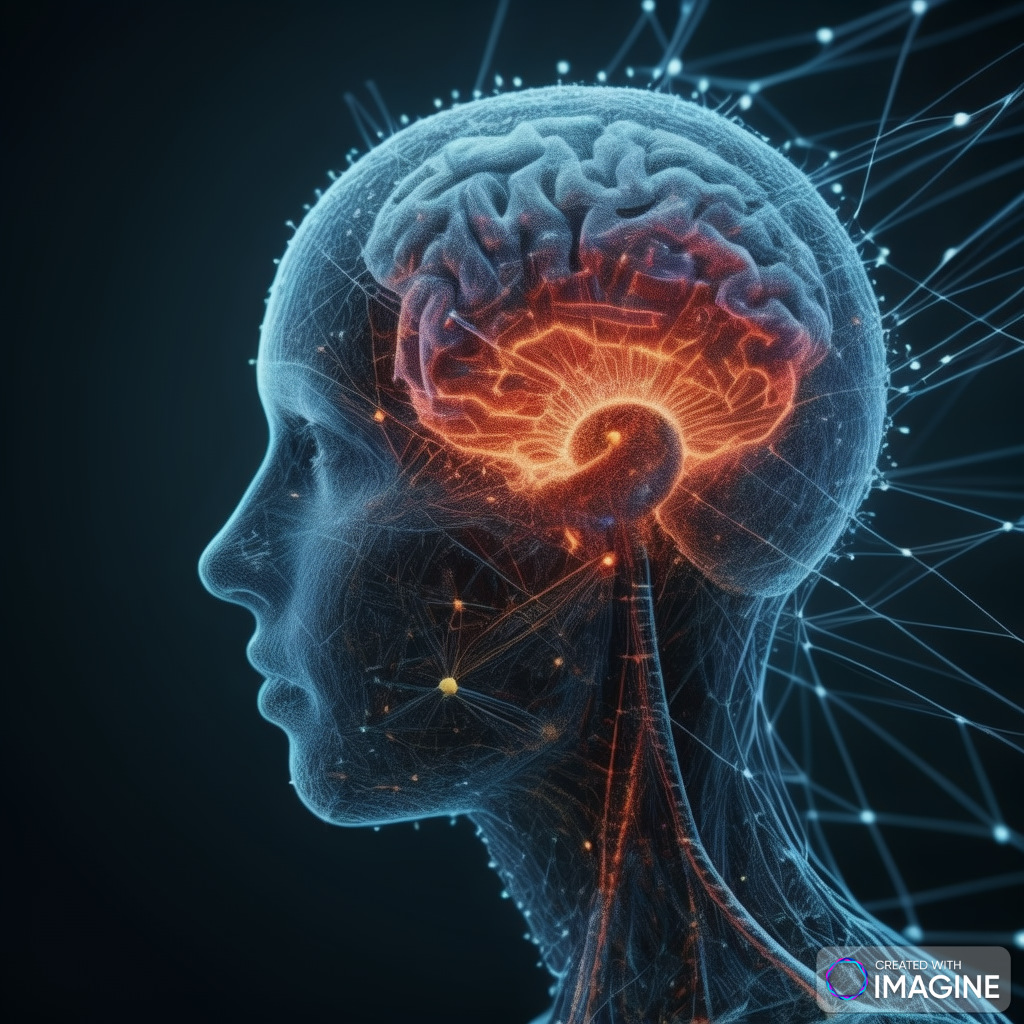Thoughts vs. Emotions: A Comprehensive Exploration
Introduction
Thoughts and emotions are integral components of human cognition, shaping our experiences and interactions. While thoughts operate on data and logic, akin to AIML systems, emotions add depth and richness to human life but can also cause turmoil. This blog post delves into the distinctions and interplay between thoughts and emotions, exploring evolutionary, medical, scientific, and neuroscience perspectives. It also examines the biological underpinnings of individual differences in thoughtfulness and emotionality, and the potential to enhance human cognitive processing while balancing emotional impact.
1. Defining Thoughts and Emotions
Thoughts:
- Nature: Cognitive processes involving reasoning, problem-solving, and decision-making.
- Function: Operate on data and information, similar to algorithms in AI, allowing for logical and analytical thinking.
Emotions:
- Nature: Complex psychological states involving physiological arousal, expressive behaviors, and conscious experiences.
- Function: Provide rapid, affective responses to stimuli, influencing behavior and decision-making, often unconsciously.
2. Evolutionary Perspectives
Adaptive Functions:
- Thoughts: Evolved to enhance problem-solving and planning abilities, crucial for survival in complex environments.
- Emotions: Serve as adaptive mechanisms for rapid responses to environmental challenges, such as fear for threat avoidance and joy for social bonding.
Survival and Reproduction:
- Thoughts: Facilitate long-term planning, resource management, and strategic thinking.
- Emotions: Drive immediate reactions and social interactions, enhancing group cohesion and reproductive success.
3. Medical and Scientific Perspectives
Cognitive Neuroscience:
- Brain Regions:
- Thoughts: Prefrontal cortex (PFC) is central to higher-order cognitive functions, including planning, decision-making, and social behavior.
- Emotions: Limbic system, particularly the amygdala, is crucial for processing emotions and generating affective responses.
Neurotransmitters:
- Thoughts: Dopamine is linked to reward, motivation, and executive function.
- Emotions: Serotonin and norepinephrine play key roles in mood regulation and emotional responses.
4. Genetics and Individual Differences
Genetic Influences:
- Thoughtfulness: Genetic factors influence cognitive traits such as intelligence, memory, and executive function.
- Emotionality: Genetics also play a significant role in emotional reactivity and regulation, with variations in genes like 5-HTTLPR affecting serotonin levels.
Biological Basis:
- Neural Connectivity: Differences in neural connectivity and brain structure contribute to individual variability in thought and emotion processing.
- Hormonal Influences: Hormones like cortisol (stress hormone) impact emotional responses, while testosterone and estrogen can influence both cognitive and emotional functions.
5. Balancing Thoughts and Emotions
Enhancing Cognitive Processing:
- Training and Practice: Cognitive training exercises and mindfulness practices can enhance cognitive processing speed and executive function.
- Neuroplasticity: Engaging in activities that challenge the brain promotes neuroplasticity, improving cognitive abilities and emotional regulation.
Reducing Emotional Impact:
- Emotional Regulation Strategies: Techniques such as cognitive reappraisal, mindfulness meditation, and stress management can help mitigate negative emotional impacts.
- Pharmacological Interventions: Medications targeting neurotransmitter systems can aid in managing excessive emotional reactivity and improving cognitive focus.
6. Striking a Balance
Integrated Approaches:
- Cognitive-Behavioral Therapy (CBT): Combines cognitive and emotional aspects to address psychological issues by changing thought patterns and emotional responses.
- Mindfulness-Based Cognitive Therapy (MBCT): Integrates mindfulness practices with cognitive therapy to enhance emotional regulation and cognitive function.
Holistic Health:
- Physical Exercise: Regular physical activity supports brain health, reducing stress and enhancing cognitive performance.
- Healthy Lifestyle: Adequate sleep, balanced nutrition, and social support are crucial for maintaining optimal cognitive and emotional well-being.
7. Future Directions
Neuroscientific Advances:
- Brain-Computer Interfaces (BCIs): Emerging technologies like BCIs have the potential to enhance cognitive processing and emotional regulation through direct brain interface.
- Neurofeedback: Real-time feedback on brain activity can help individuals train their brain to improve cognitive and emotional control.
AI and Human Cognition:
- Augmented Intelligence: Combining AI with human cognition to augment decision-making processes while accounting for emotional context.
- Personalized Interventions: Using AI to develop tailored cognitive and emotional training programs based on individual neural and genetic profiles.
Further Exploration of Thoughts vs. Emotions
Expanding our understanding of the dynamic relationship between thoughts and emotions reveals deeper layers of cognitive and affective processes. This section delves into additional perspectives, including more advanced neuroscientific insights, complex psychological theories, and evolutionary biology. We will also explore the latest research on cognitive enhancement and emotional resilience, and consider the implications of these findings for human potential and AI integration.
1. Advanced Neuroscientific Insights
Cortical and Subcortical Interactions:
- Cortical Influence: Higher-order cortical areas, such as the dorsolateral prefrontal cortex (DLPFC), play a crucial role in executive functions and modulating emotional responses.
- Subcortical Structures: Subcortical regions, including the basal ganglia and hypothalamus, contribute to the generation and regulation of complex emotional states and automatic behaviors.
Neural Pathways:
- Amygdala-Prefrontal Circuit: The amygdala processes emotional stimuli and communicates with the prefrontal cortex to integrate emotions with rational decision-making.
- Hippocampus-Emotion Link: The hippocampus, involved in memory formation, interacts with the amygdala to create emotionally charged memories that influence future thought patterns and behaviors.
2. Complex Psychological Theories
Dual-Process Theory:
- System 1: Represents fast, automatic, and intuitive thinking that relies heavily on emotions and heuristics.
- System 2: Involves slow, deliberate, and analytical thinking, emphasizing rationality and logical processing. These systems interact continuously to shape decision-making and behavior.
Affective Forecasting:
- Predicting Emotions: Refers to the process by which individuals predict their future emotional states and make decisions based on these predictions. This often involves significant biases and inaccuracies.
- Impact on Decisions: Affective forecasting can lead to suboptimal choices due to the overestimation or underestimation of future emotional impacts.
3. Evolutionary Biology and Emotions
Social Bonds:
- Emotion Evolution: Emotions evolved to strengthen social bonds and ensure cooperation within groups, which was vital for survival in early human societies.
- Oxytocin and Bonding: The hormone oxytocin plays a significant role in promoting social bonding, trust, and empathy, linking emotional responses to evolutionary success.
Fear and Survival:
- Adaptive Responses: Fear triggers the fight-or-flight response, a crucial survival mechanism that prepares the body to respond to threats.
- Genetic Predispositions: Genetic variations can influence the sensitivity and reactivity of the fear response, impacting individual differences in emotional experiences.
4. Cognitive Enhancement Techniques
Neurostimulation:
- Transcranial Magnetic Stimulation (TMS): A non-invasive method that uses magnetic fields to stimulate specific brain areas, enhancing cognitive functions such as memory, attention, and decision-making.
- Transcranial Direct Current Stimulation (tDCS): Applies a low electrical current to the scalp to modulate neuronal activity, potentially improving cognitive abilities and emotional regulation.
Nootropics:
- Cognitive Enhancers: Substances that purportedly improve cognitive functions, including memory, creativity, and motivation. Examples include modafinil, caffeine, and certain nutraceuticals.
- Potential Benefits and Risks: While nootropics may offer cognitive benefits, their long-term effects and safety profiles require further research.
5. Emotional Resilience and Regulation
Mind-Body Practices:
- Yoga and Tai Chi: Integrative practices that combine physical postures, breath control, and meditation to enhance emotional balance, reduce stress, and improve cognitive focus.
- Biofeedback: A technique that trains individuals to control physiological processes, such as heart rate and muscle tension, to enhance emotional regulation and reduce anxiety.
Cognitive Flexibility:
- Adaptive Thinking: The ability to switch between different thought processes and adapt to changing environments, which is crucial for effective emotional regulation and problem-solving.
- Training Methods: Techniques such as cognitive reappraisal, mindfulness, and exposure therapy can enhance cognitive flexibility and resilience.
6. Human-AI Synergy
AI-Enhanced Decision Support:
- Predictive Analytics: AI systems can analyze vast amounts of data to provide insights and predictions, supporting human decision-making processes by reducing cognitive load and enhancing accuracy.
- Emotional AI: Emerging AI technologies aim to recognize and respond to human emotions, creating more empathetic and effective human-computer interactions.
Neural Interfaces:
- Brain-Computer Interfaces (BCIs): Advanced BCIs enable direct communication between the brain and external devices, potentially enhancing cognitive abilities and enabling new forms of human-AI collaboration.
- Ethical Considerations: The integration of BCIs raises ethical questions about privacy, autonomy, and the potential for cognitive enhancement beyond natural limits.
7. Implications for Human Potential
Personalized Cognitive Interventions:
- Tailored Approaches: Personalized interventions based on genetic, neural, and psychological profiles can optimize cognitive and emotional development, enhancing individual potential.
- Data-Driven Insights: Leveraging big data and machine learning, personalized health strategies can provide targeted support for cognitive and emotional well-being.
Future Research Directions:
- Longitudinal Studies: Long-term research is needed to understand the effects of cognitive and emotional enhancement techniques over time, ensuring their efficacy and safety.
- Interdisciplinary Collaboration: Combining insights from neuroscience, psychology, genetics, and AI will drive innovation in understanding and enhancing human cognition and emotion.
Further Detailed Exploration: Enhancing Thought and Managing Emotions for Individuals with Cognitive and Emotional Challenges
Understanding and addressing the needs of individuals whose cognitive and emotional functioning are compromised due to deficits in executive function, attention, and prefrontal cortex activity is crucial. This section delves into the causes of these challenges, offers strategies for improvement, and explores the latest advancements in neuroscience and therapeutic approaches.
1. Understanding Cognitive and Emotional Challenges
Prefrontal Cortex Deficits:
- Role of the Prefrontal Cortex: Critical for executive functions, including planning, decision-making, impulse control, and working memory.
- Impaired Function: Deficits in this area can lead to difficulties in regulating emotions, maintaining attention, and executing complex cognitive tasks.
Attention Deficits:
- Attention Deficit Hyperactivity Disorder (ADHD): Characterized by inattention, hyperactivity, and impulsivity, often linked to lower activity in the prefrontal cortex.
- Impact on Daily Life: Individuals may struggle with organizing tasks, following through on plans, and sustaining focus on activities.
Emotional Dysregulation:
- Excessive Emotional Responses: Heightened emotional reactivity can overwhelm cognitive processing, making it difficult to think clearly and make rational decisions.
- Chronic Stress: Prolonged stress can impair prefrontal cortex function, exacerbating difficulties with executive function and emotional regulation.
2. Genetic and Neurobiological Factors
Genetic Influences:
- Heritability of Executive Functions: Genetic variations can affect neurotransmitter systems, such as dopamine and serotonin, influencing cognitive and emotional regulation.
- Polymorphisms: Specific gene polymorphisms, like those in the COMT gene, can impact prefrontal cortex activity and executive function.
Neurobiological Mechanisms:
- Neurotransmitter Imbalances: Dysregulation in neurotransmitter systems, such as dopamine and norepinephrine, is often associated with attention deficits and emotional dysregulation.
- Brain Connectivity: Reduced connectivity between the prefrontal cortex and other brain regions, such as the limbic system, can impair the integration of cognitive and emotional information.
3. Strategies for Improvement
Cognitive Behavioral Interventions:
- Cognitive Behavioral Therapy (CBT): Helps individuals identify and change negative thought patterns and develop strategies for managing emotions and improving executive function.
- Executive Function Training: Specific exercises aimed at enhancing working memory, planning, and organizational skills.
Neurofeedback:
- Biofeedback for the Brain: Teaches individuals to control brain wave activity through real-time feedback, potentially improving attention and executive function.
- Evidence of Effectiveness: Research shows neurofeedback can be beneficial for individuals with ADHD and other attention-related disorders.
Mindfulness and Meditation:
- Mindfulness-Based Stress Reduction (MBSR): Combines mindfulness practices with stress reduction techniques to enhance emotional regulation and cognitive function.
- Mindfulness Meditation: Regular practice can improve attention, reduce stress, and enhance prefrontal cortex activity.
Pharmacological Interventions:
- Stimulant Medications: Drugs like methylphenidate and amphetamines are commonly used to treat ADHD by increasing dopamine and norepinephrine levels.
- Non-Stimulant Medications: Options such as atomoxetine and guanfacine can help improve attention and executive function without the side effects of stimulants.
4. Supporting Emotional and Cognitive Balance
Therapeutic Approaches:
- Dialectical Behavior Therapy (DBT): Combines cognitive-behavioral techniques with mindfulness to address emotional dysregulation and improve executive function.
- Emotion Regulation Skills Training: Teaches individuals techniques to manage intense emotions and reduce their impact on cognitive processing.
Lifestyle Modifications:
- Physical Exercise: Regular physical activity can enhance cognitive function, reduce stress, and improve overall brain health.
- Diet and Nutrition: A balanced diet rich in omega-3 fatty acids, antioxidants, and essential nutrients supports brain health and cognitive function.
Sleep Hygiene:
- Importance of Sleep: Adequate sleep is crucial for cognitive functioning and emotional regulation. Chronic sleep deprivation impairs the prefrontal cortex and exacerbates attention deficits.
- Improving Sleep Quality: Establishing a regular sleep routine, reducing screen time before bed, and creating a restful sleep environment can improve cognitive and emotional well-being.
5. Advancements in Neuroscience and Therapeutics
Transcranial Magnetic Stimulation (TMS):
- Non-Invasive Brain Stimulation: TMS uses magnetic fields to stimulate specific brain regions, potentially enhancing prefrontal cortex activity and improving executive function.
- Clinical Applications: TMS has shown promise in treating depression, ADHD, and other conditions associated with cognitive and emotional dysregulation.
Cognitive Enhancement Technologies:
- Brain Training Apps: Digital platforms offering games and exercises designed to improve cognitive functions such as memory, attention, and problem-solving.
- Virtual Reality (VR): VR-based therapies can provide immersive environments for cognitive training and emotional regulation exercises.
Genetic and Epigenetic Research:
- Gene Therapy: Emerging research explores the potential of gene therapy to correct genetic abnormalities affecting executive function and emotional regulation.
- Epigenetic Modulation: Investigating how environmental factors and lifestyle changes can influence gene expression related to cognitive and emotional functions.
6. Integrating Thought and Emotion
Holistic Approaches:
- Whole-Person Care: Combining cognitive, emotional, and physical health strategies to support overall well-being and enhance cognitive functioning.
- Interdisciplinary Collaboration: Integrating insights from psychology, neuroscience, genetics, and medicine to develop comprehensive interventions for individuals with cognitive and emotional challenges.
Educational and Occupational Support:
- Accommodations: Providing tailored support and accommodations in educational and work settings can help individuals manage their cognitive and emotional challenges.
- Skill Development: Focused training in executive function skills, emotional regulation techniques, and stress management can empower individuals to achieve their full potential.
Conclusion
Addressing cognitive and emotional challenges requires a multifaceted approach that integrates genetic, neurobiological, psychological, and lifestyle factors. By leveraging advanced neuroscientific insights and therapeutic techniques, we can enhance cognitive processing and emotional regulation for individuals with executive function deficits. A holistic, personalized approach can support the development of balanced cognitive and emotional functioning, paving the way for improved quality of life and greater human potential.
Thoughts and emotions are deeply interconnected, influencing every aspect of human experience. While thoughts provide a framework for rational decision-making, emotions add richness and complexity to our interactions. By exploring advanced neuroscientific insights, evolutionary biology, and cutting-edge cognitive enhancement techniques, we can better understand and optimize the balance between thought and emotion. Integrating AI with human cognition holds promise for further enhancing our capabilities, paving the way for a future where cognitive and emotional resilience are within reach for everyone.
Understanding the interplay between thoughts and emotions is crucial for optimizing human cognition and well-being. While thoughts provide logical and analytical capabilities, emotions enrich our experiences and drive rapid responses. Balancing these aspects through cognitive training, emotional regulation, and lifestyle choices can enhance overall functioning. Advances in neuroscience and AI hold promise for further enhancing cognitive processing and managing emotional impact, paving the way for a more integrated and holistic approach to human development.







